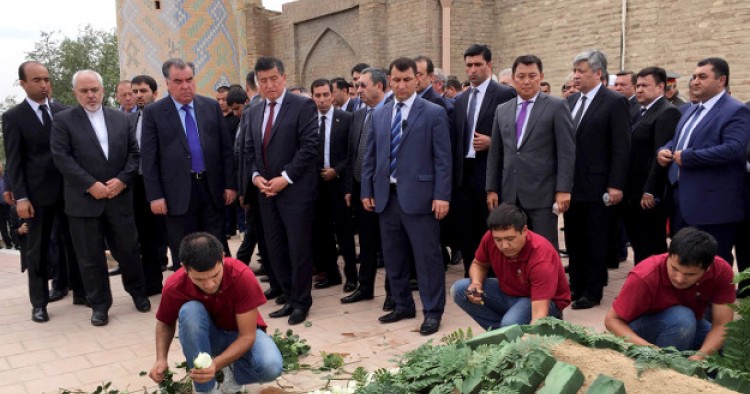The Iranian embassy in Tajikistan has shut down its economic and cultural offices in northern parts of the country, the BBC Persian reported today. The move came after Tajik authorities ordered the directors of Iranian government organizations in Khujand, the second-largest city in Tajikistan, to suspend their activities in the north – without explaining the reason behind the latest government crackdown on Iranian activities in the country. Over the past two years, several Iranian government organizations and charities have also been forced to suspend their activities in the Tajik capital of Dushanbe – including the Imam Khomeini Relief Committee, the Cultural Center of the Islamic Republic of Iran, and a hospital jointly run by the Tajik government and the Red Crescent Society of the Islamic Republic of Iran.
Comment: The closure of Iranian organizations is the latest indication of rising diplomatic tension between Dushanbe and Tehran. Relations between the two countries took a nosedive in December 2015 when the Iranian government invited Muhiddin Kabiri, a Tajik opposition leader living in exile, to attend the annual “International Islamic Unity Conference” in Tehran as a “special guest.” In a rather provocative act, Iran’s Supreme Leader Ali Khamenei met with Kabiri and the state-run media publicized the meeting. Kabiri is the leader of the Islamic Renaissance Party of Tajikistan (I.R.P.T.), a political party outlawed by the Tajik government.
By doing so, Tehran perhaps wanted to send a veiled threat to the Tajik government, which was seeking closer ties with Iran’s regional rival Saudi Arabia. Since then, diplomatic ties between Tajikistan and Iran have been on a downward spiral. The Tajik government has also restricted the activities of some Iranian companies and businesses in the country.
So far, multiple bilateral diplomatic engagements have yielded little result, and Tehran has not responded positively to Dushanbe’s request to designate the I.R.P.T. as a terrorist organization. According to the Russian press, Tajikistan has opposed Iran’s accession to the Shanghai Cooperation Organization (S.C.O.), where Iran has an observer status while Tajikistan holds veto rights as a founding member. In April, Russian President Putin’s special envoy to S.C.O. said while Moscow supports Iran becoming a full-fledged S.C.O. member, some other members of the organization oppose Iran’s accession – without naming a specific country.
While a lot of ink has been spilled about Iran’s support for regional militant groups, Iran’s soft power influence that complements Tehran’s hard power strategies and expansionist ambitions in the region is often neglected. From Central and South Asia to the Middle East and North Africa, the Islamic Republic employs myriad soft power tools – including cultural, educational, media and informational, religious, humanitarian and reconstruction programs – to expand its ideological and political sphere of influence in in the region.
It is worth noting that not all Iran’s soft power tools are benign. Many Iranian charity, educational and cultural organizations in the region are a cover for the Islamic Revolution Guards Corps (I.R.G.C.) and its elite Quds Force operatives to function without detection. For example, the I.R.G.C. established the Iranian Committee for the Reconstruction of Lebanon (I.C.R.L.) after the 2006 Israel-Hezbollah war to rebuild Hezbollah-dominated regions in southern Lebanon; two years later, the United States Department of Treasury designated the I.C.R.L. as a terrorist organization because it “financed and facilitated” the activities of Hezbollah, a US-designated terrorist organization. Hassan Shateri, a Quds Force commander, headed the I.C.R.L. under the pseudonym Hessam Khoshnevis from its inception until he was killed in Syria in February 2013.
The Imam Khomeini Relief Committee is another Iranian state-run organization disguised as a charity devoted to advancing Tehran’s geopolitical and ideological ends in the broader region. In August 2010, the U.S. Department of Treasury designated I.K.R.C.’s Lebanon branch as a foreign terrorist organization because it “fund[s] and operate[s] Hizballah youth training camps.”
The Middle East Institute (MEI) is an independent, non-partisan, non-for-profit, educational organization. It does not engage in advocacy and its scholars’ opinions are their own. MEI welcomes financial donations, but retains sole editorial control over its work and its publications reflect only the authors’ views. For a listing of MEI donors, please click here.












